What's the best time to visit Africa?
The best time to visit North Africa is in spring (April to June) and autumn, avoiding the extreme heat of summer and the chill of winter. East Africa is ideal from September to January for coastal activities and during specific months like July or October for the great wildebeest migration in safari parks.
For Southern Africa, the best travel period spans from November to March, offering pleasant weather for both city exploration and wildlife safaris.
Africa is truly an undiscovered continent. Unlike other regions saturated with tourism, most of Africa remains untouched. With beautiful national parks, diverse cultural experiences, and friendly people, you should visit Africa at least once in your lifetime.
Whether you’re going on a safari or want to see the pyramids of Giza, we’ll show you the best time to visit Africa. We’ll also show you the worst time – when you should avoid traveling. Plus, we’ll give you some insider tips on saving money when traveling to Africa and more.
The Overall Best Time to Visit Africa
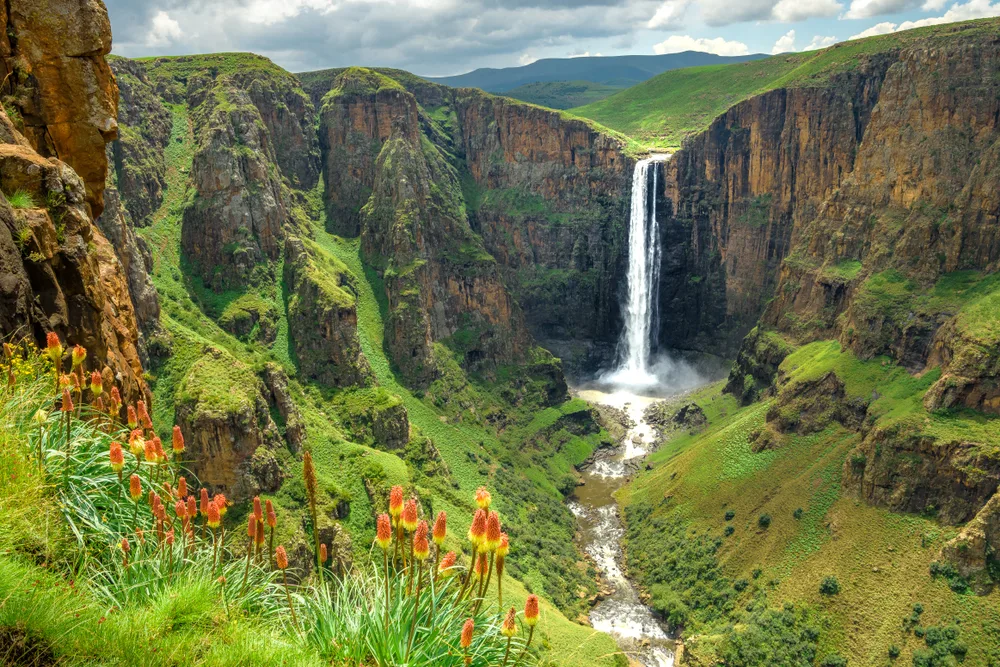
mbrand85/Shutterstock
The overall best time to visit most of Africa is from October to March, but the best time to visit North Africa is from May to June.
This question is a little tricky because Africa is a large continent with 54 countries. You can’t lump the whole of Africa together, as the different regions are far apart, both geographically and culture-wise.
Throughout this article, we’ll break things down into four regions and two tourism types:
Regions
- North Africa
- East Africa
- Southern Africa
- Western Africa
Tourism Types
- Safari/game parks
- Beach and coastal adventures
Let’s start with North Africa. When people visit North Africa, they typically visit Morocco, primarily Marrakesh, and Egypt, where people usually go to see the pyramids of Giza near Cairo.
Note that North Africa is above the equator. That means it follows the weather patterns of Europe, especially Southern Europe. The best time to visit North Africa would be in the spring, from April to June. Autumn can also be a good time.
During the winter (December and January, for example), Cairo can get pretty cold. It might not snow, but you’d be surprised by how frigid it can get. In the summer, on the other hand, North Africa can be blazing hot.
Let’s move on to East Africa. If you’re visiting East Africa, you’re probably going to Kenya, Uganda, Ethiopia, or Tanzania. If you’re going for beaches and coastal adventures, it’s best to go from September to January. That’s the dry, hot season – it’s actually summer there.
If you go in June, for example, you’ll be visiting in the heart of the rainy season, when it rains a lot and can get chilly. Note that December and January have rainfall too.
However, things get a little more complicated if you’re going on safari. On the one hand, you want to avoid the rainy season. On the other hand, you probably want to see the great wildebeest migration, which follows rainfall patterns and alternates between famous national parks.
The herds move between the Serengeti National Park in Tanzania and the Masai Mara in Kenya, where you can see it in July and once again in October.
If you want to see the great migration, it’s best to speak with a tour operator who knows the prediction for the current year and can help you get the best chance of being in the right spot at the right time to see the herds moving.
Otherwise, it can be pretty tricky to see it. If you’re visiting Southern Africa, remember that it is below the equator, and weather patterns are opposite that of North America and Europe. Thus, the best time to visit is from November to March, whether you’re visiting Cape Town or going on safari.
After that, it can get pretty cold. For West Africa, aim for October to March, which is the dry season. The rainy season can make traveling difficult, especially if you plan on overlanding between countries.
Cheapest Time to Visit Africa

AMBALAVAO, MADAGASCAR – DECEMBER 11, 2013: Rice farmers working on rice terrace fields in central Madagascar/Oliver S/Shutterstock
The cheapest time to visit most of Africa is from March to June. The least expensive time to visit Africa is the opposite of the most popular time. It’s only logical, after all.
During the rainy season in East Africa and West Africa, and during the respective winters of Southern Africa and North Africa (which are opposite each other), the flights will be much cheaper.
Furthermore, lodging will be much more affordable, as many hotels will be desperate for guests. If you want to save money, you can brave the cold and rainy weather of the different regions and go during unpopular times.
Remember, each year is unique. During some years, the rainy season might not have that much rain, and you’ll enjoy sunny, warm days most of the time. During other years, you may have torrential rains almost daily, depending on the region.
Least Busy Time to Visit Africa
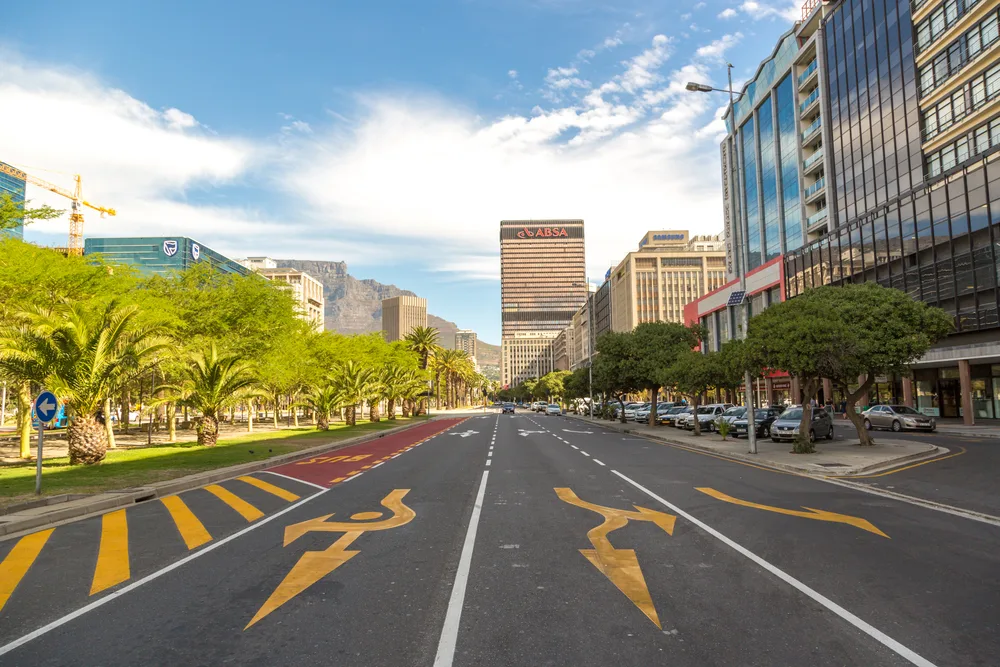
LMspencer/Shutterstock
The least busy time to visit most of Africa is March to June. The least busy times to visit Africa are also the worst times for a trip. However, it does depend on where you’re going.
If you’re visiting Zanzibar in Tanzania, you’ll find the months of April to June the least busy, as that is when it rains buckets – it’s the monsoon season. You may even see flooded roads, although there will also be dry and sunny days when you can enjoy the beach.
The busiest times are often December, especially around Christmas and New Year. Many people travel on safari during those times.
Furthermore, if you’re going to a beach destination like Zanzibar, you’ll find many locals from the mainland on vacation. At the same time, that’s the best time to go if you want to partake in festivals, meet people, and go partying.
Worst Time to Visit Africa
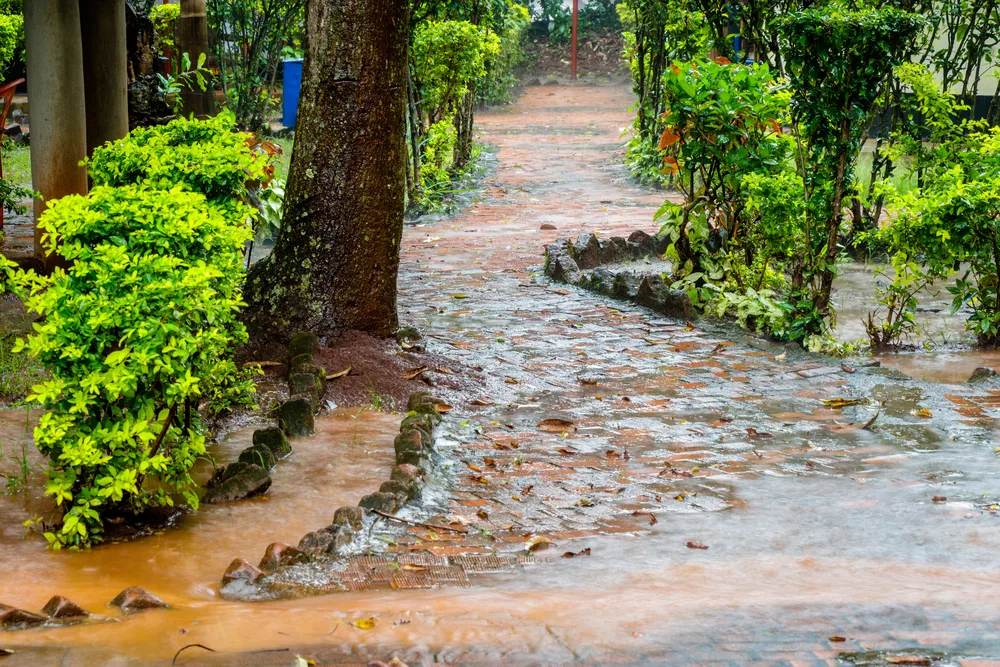
Dennis Wegewijs/Shutterstock
Generally, the worst time to visit Africa is during the rainy season. In some areas, it can get pretty cold in addition to rainy, such as around Nairobi in Kenya.
Remember, infrastructure in Africa, especially West Africa, is not always very well-maintained. Roads between cities and even within cities aren’t always paved very well. When it rains, it can get pretty muddy.
At the end of the day, though, it depends on your preferences. If you hate crowds that much, you might avoid traveling to Africa for New Year.
Africa by Month: Climate & Activities
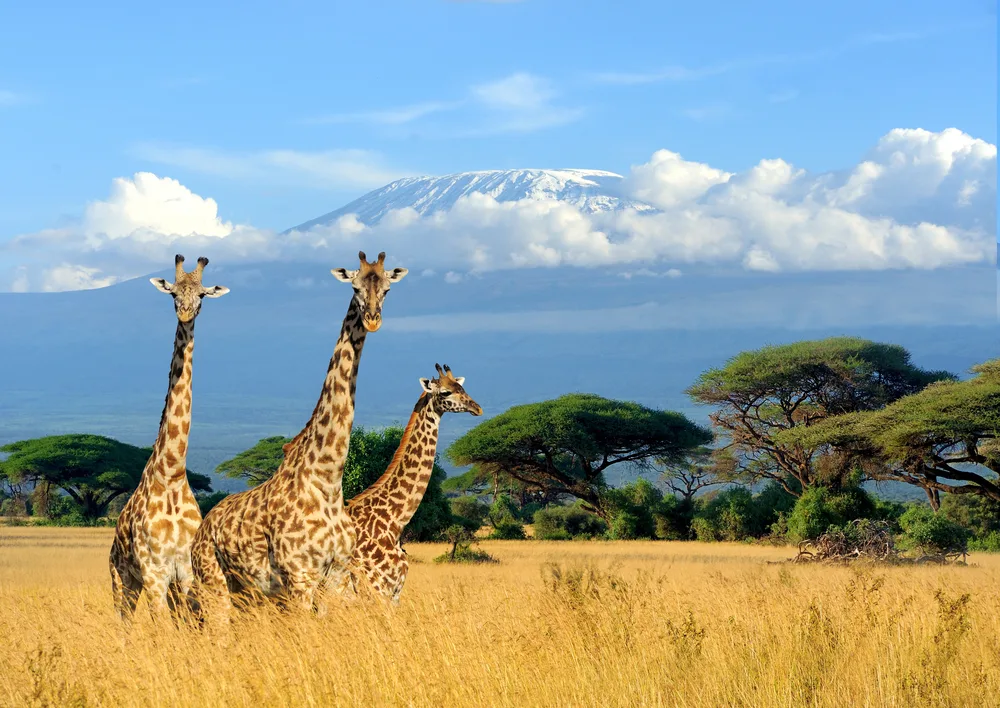
Volodymyr Burdiak/Shutterstock
Still unsure about the best time to visit Africa? Take a look at our summary of the weather and climate by month below:
January
January is perfect for wildlife viewing in Tanzania’s Serengeti National Park during the Great Migration. In South Africa, Cape Town enjoys warm summer weather, ideal for beaches and exploring Table Mountain.
February
In February, we recommend visiting Egypt in February for mild temperatures, ideal for exploring the Pyramids and cruising the Nile. In Kenya, it’s a great time for safaris in the Maasai Mara to see a variety of wildlife.
March
Morocco’s weather in March is perfect for exploring Marrakech and hiking in the Atlas Mountains. In Botswana, the Okavango Delta’s wet season brings abundant wildlife and lush landscapes.
April
We recommend visiting Zimbabwe in April to see the majestic Victoria Falls at their fullest. Ethiopia’s pleasant climate makes it ideal for exploring historical sites like Lalibela and Aksum.
May
May is a great time to visit Madagascar for cooler temperatures and to see unique wildlife. In Namibia, the dry season begins, offering clear skies for visiting the Namib Desert and Sossusvlei.
June
June in Afriac is an excellent month for gorilla trekking in Rwanda and Uganda, with cooler, dry weather. The Seychelles offer idyllic beach conditions and great snorkeling.
July
July brings peak safari season in Kenya and Tanzania, with dry weather and abundant wildlife. Egypt’s Red Sea coast is perfect for diving and beach activities.
August
In August, South Africa’s Kruger National Park offers excellent wildlife viewing. Mozambique’s coast is ideal for whale watching and enjoying water sports.
September
Visit Zambia in September for exceptional wildlife viewing in South Luangwa National Park. Morocco’s coastal cities like Essaouira are perfect for mild weather and cultural exploration.
October
In October, visit Ghana for warm weather and cultural festivals like the Homowo Harvest Festival. Tunisia’s Mediterranean climate is great for beach holidays and exploring ancient ruins.
November
Visit Mauritius for warm, sunny weather and beautiful beaches. Ethiopia’s Danakil Depression offers a unique adventure in a surreal landscape.
December
December is ideal for exploring South Africa’s diverse landscapes and enjoying summer festivals. Tanzania’s Zanzibar offers perfect beach weather and vibrant cultural experiences.
Frequently Asked Questions
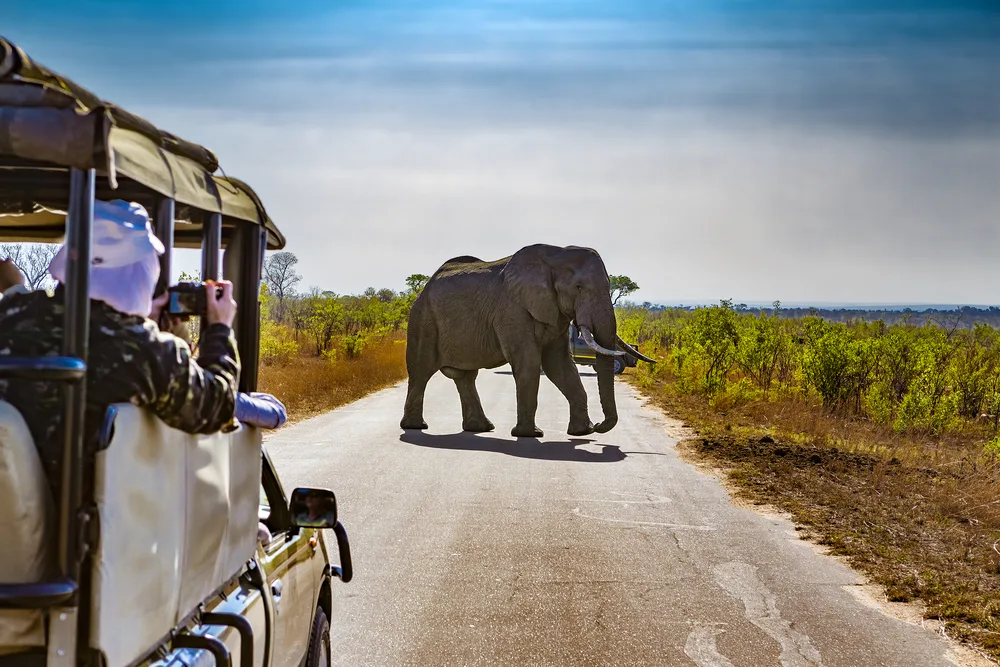
WitR/Shutterstock
Do you still have questions about visiting Africa? Here are answers to some common questions we see from readers.
How many days are enough for Africa?
Typically, you should aim to spend at least 5-7 days on safari if you want the best chance of seeing the widest range of wildlife. If you plan to stop in Cape Town, Zanzibar, Victoria Falls, Mombasa, or any other popular destination, add another 3-7 days. As a general rule of thumb, aim for 1-2 weeks.
What is the safest African country to visit?
According to the Global Peace Index, Mauritius is the most peaceful and safest country in Africa. According to the RCG Safety Index, which ranks countries using factors like crime and other hazards like road deaths, Seychelles, Mauritius, and Morocco are also among the safest countries to visit. South Africa, on the other hand, is one of the most dangerous.
Why is traveling to Africa so expensive?
Traveling to Africa is more expensive than traveling to Europe, South America, or even Asia. There are a few reasons for this, one of them being the lack of many direct flights from the US. Furthermore, there aren’t as many budget accommodation options as in Asia or South America.
So, What’s the Best Time to Visit Africa?
The best time to visit Africa is from October to May unless you’re visiting North Africa, which you should visit from April to July. But regardless of when you go, however, you’re bound to have a memorable trip. Happy travels!



